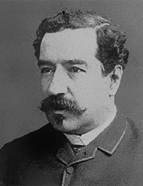

In Évora, like many intellectuals of his era, G. Pereira cultivated and expanded his passion for history, art, literature, and archaeology, locating, identifying, and analysing bibliographic and archival collections, as well as archaeological artefacts. Merging scholarly knowledge with personal interests, he also dedicated himself to translating classical works from Latin, such as those of Strabo and Pliny, focusing especially on texts describing the geography of the Iberian Peninsula. At the same time, he publishes Dolmens ou Antas dos Arredores d'Évora [Dolmens or Antas of Évora's surroundings] (1875) and directed the series Estudos Eborenses: História, Arte, Arqueologia [Évora Studies: History, Art, Archaeology], published in 37 pamphlets between 1884 and 1894. His work compels him to continually update his literary and scientific knowledge, both nationally and internationally. Additionally, he critically analyses observed realities, employing evolutionist, progressive, and migrationist models, alongside comparative and oral collection methods. He promotes a methodical and scientific approach to studying the country's prehistoric and protohistoric past, while also showing a keen interest in institutional and social history, aligning with emerging historiographical trends developing abroad.
Meanwhile, through letter no. 164 from the Direcção Geral de Instrucção Pública [General Directorate for Public Education], dated 15 November 1879, the young palaeographer G. Pereira was commissioned to organise the records of the now-defunct Treasury Board of the University of Coimbra (UC), creating a provisional index of the documents in its registry, published under the title Catálogo Provisório dos Pergaminhos da Universidade de Coimbra [Provisional Catalogue of the University of Coimbra Scrolls] (1888), while writing Documentos Históricos da Cidade de Évora [Historical Documents from the City of Évora] (1885-1891). This new professional phase stemmed from the results he obtained in the Misericórdia archives, as well as from the increasingly strained atmosphere surrounding him in recent times, and his close association with A. Filipe Simões (his predecessor as head of the public library of Évora and now a lecturer at the UC Faculty of Medicine).
This work is financed by national funds through FCT - Foundation for Science and Technology, I.P, in the scope of the projects UIDB/04311/2020 and UIDP/04311/2020.
